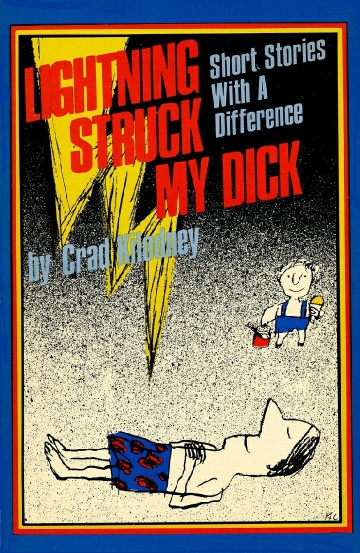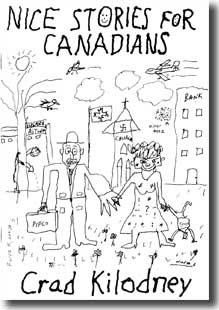First, I want to express deep gratitude to Ed for allowing someone who cannot for the life of him figure out how “more” works in WordPress to post screensful of verbiage on his very impressive piece of digital real estate. Ed, you are the best, and I owe you a ride on the Wonder Wheel in Coney Island.
Thanks so much too, to my fellow guest bloggers; it was really enjoyable to read your posts and I will try to learn something about brevity being the soul of wit.
Sunday, August 21, 1977
11 p.m. I’m a bit paranoid about staying in my room after spotting the mouse last night. I had a hard time falling asleep and now the slightest sound makes me jump. Oh well, I suppose the mice have to live, too.
I’ve been talking in the parlor, by the fire, with Ron Carlson, whose first novel, Betrayed by F. Scott Fitzgerald, was favorably reviewed in the Times the day of the blackout when there were few copies; but it’s actually selling quite well. He talked about teaching at Hotchkiss and how ideal it is from him and how removed it is from the outside world. I think I might like a job like that, teaching brilliant 11th graders. But he found my stories about LIU interesting.
I met with Tim O’Brien this morning. He didn’t really offer any criticism of my work, which was good. He, of course, didn’t like the kinds of things I like and he tried to convince me to join his side, as it were. Tim said I do what I do very well but I’m capable of writing his kind of stories, filled with characters people can identify with and dealing with big themes like courage.
He was glad I wasn’t very dogmatic about experimental fiction (my philosophy is pretty much live and let live) and he thought it was good that I came to Bread Loaf to get the view of the other side.
We talked in general for a while. He’s 30, a Vietnam veteran (his first book, a war story, If I Die in a Combat Zone, is already taught in colleges) and a doctoral student in government at Harvard (he said he’ll never write his dissertation). Tim told me he makes a living from his writing; I told him that was something I never expected to do, and he said that was good, because with my stuff I sure couldn’t do it.
He said I should be over at Treman Cottage all the time, getting to know the big name writers; that’s why I’m here as a Scholar. I like Tim a lot though I’m not sure his work would interest me; I’ll have to get it.
Today was almost warm, and I enjoyed it. I talked with Alice Rogoff, who’s going to S.F. State for her M.A. in Creative Writing; she’s cute and I enjoyed being with her. I lunched and had dinner with several interesting people, including a woman whose next book will be about her travels to the Soviet Union and an older woman who wrote a young adult novel that Gardner told her is publishable.
Every one of the Contributors takes their conferences much more seriously than I. Kevin met with Meredith and was a bit down from that. As I suspected, most of the people here aren’t and will never be very good writers; Tim confirmed this. But he also said that they’re the nicest people that you’ll ever run across, and that’s true.
I went to a nonfiction panel on doing research and heard Geoffrey Wolff read a moving essay about his father, a con man. The Bread Loaf librarian told me there’s a “new spririt” at the Conference; Sandy and Bob and people like Toni Morrison have changed it from a wild circus of sex and drinking to a quiet place where people discuss and share mutual interests.
Monday, August 22, 1977
I’m alone in the house now, sitting by the crackling fire. Charles estimated that this house and property around it would be worth as much as $30,000 on the open market. It’s strange to be here, lying on this sofa, the breeze from the open door startling my leg.
This week at Bread Loaf has been good for me, I think. Perhaps I haven’t exploited the Conference staff and my position as a scholar to “make connections.” I have barely spoken to John Gardner or Stanley Elkin (who’s dying of multiple sclerosis, like the character in his latest novel) or Mark Strand or Charles Simic (who told me he just got a card from Jon Baumbach in England). And my work hasn’t really been critiqued by anyone.
But still, I’ve taken advantage of other things that Bread Loaf has to offer. The multiplicity of writers, good and bad, published and unpublished, young and old, male and female, has made me aware that I’m certainly not alone. That is both a relief and discomfort.
The relief comes from knowing all these wonderful, sensitive people who are struggling, as I am, to express themselves and to perfect their craft. But the fact that my quest is shared by many makes me feel less unique, and invariably, less special. My voice is my own, true, but there are so many here who are just as good or better than I am that I despair of ever gaining any recognition.
So what if I’ve published 30 stories in literary magazines? Tim O’Brien published a novel when he was younger than me, and the novel was reviewed well and made money and is taught. Still, who is Tim O’Brien? I just passed him on a narrow trail in the woods. He was sitting on a plank over a stream making out with that witty divorced teacher from Plymouth.
Tim is not great; even John Gardner isn’t a great writer, and Tim told me he shared my view on that. But I can’t believe that one has to be great or one fails. If I believe that, I will end up being frustrated and bitter. I will settle for little successes and try to be the best writer of whatever it is that I write that I am capable of being. Probably some people’s dreams of literary stardom have been shattered here; I heard that Gardner told some people to just give up writing.
I never expected to be a superstar, though I’ve wished for it, and while it troubled me an hour ago when the agent Richard Marek told his audience that short story collections are impossible to sell, it was no surprise to me, not even when he said that the stories “must have appeared in The New Yorker, Harpers and Playboy and not in places like the Transatlantic Review.” Ha, that’s my most prestigious publication.
Hilma Wolitzer’s lecture was quite useful to me. She started “late,” at 35, and she’s lived a very quiet and ordinary middle-class Jewish life in Brooklyn and Long Island, a life that must be similar to the sedate life I’ve led. But she said one did not have to experience the unusual to write about it; we are all unique and some of us have great imaginations. The important thing, she said, is to be the kind of person whom nothing gets by, on whom nothing is lost.
Maxine Kumin lectured on workshops and exercises in poetry – that was useful to me, too, I think. I feel like I’m storing up psychic energy here that will be released in the stories I write when I get back to Brooklyn and resume my routines.
Tuesday, August 23, 1977
I’m starting to get anxious to get back to New York. I’ve decided to leave on Friday so I can spend just a little time with Elise and Herbert before they go back to Germany. I miss them already, and it will be hard not being able to see them for a long time. I miss people I didn’t think I’d miss. I miss Dad most of all.
Robert Pack read a maxim last night: “When the father dies, the son becomes mortal.” And: “When the father feeds the son, they both laugh. When the son feeds the father, even the sea shudders.” I cried at Pack’s reading, the only one which affected me that way.
I was sitting in front of Tom Nevins, the waiter who’s also from Brooklyn, whom I have a terrible crush on. Because I have a crush on him, it’s harder for me to approach him than anybody else. He’s cute and boyish and has a sensitive slender face. Today I learned that he just graduated from the College of Staten Island, so I asked him if he knew Herb Leibowitz. He said that’s how he got here, that Herb recommended him.
Pack’s reading, as I said, was quite good. He’ll never be a great poet, I think, but he’s sincere and witty and seems to be a happy man. Mark Strand’s poetry, in contrast, is superior in every respect but there is no warmth in it.
This morning, after breakfast, I went to Elkin’s workshop. Elkin is an intelligent man and the workshop was interesting, but I found the stories so palpably amateurish – full not only of weak plots and dull characters but choked by imprecise, sloppy prose – that I really couldn’t get into it.
I’ve read most of the guys’ poetry and most of it is on a very early level. Of course, they are young, but many of the older people here have no conception of sophisticated writing.
Gardner, in his workshop, had us write beginnings, middles and ends to novels and had us read them aloud. I wrote about a guy who can’t stop pissing and will have to stay in the bathroom for years, the end a riff on the end of A Man of Property: “He might piss and piss and never get it – the beauty and the loving in the world.”
Wednesday, August 24, 1977
It’s been raining and bone-chillingly cold, more like the end of November than the end of August. I really would like to get on a bus to New York tomorrow. I’m bored by now, and after today I feel I’ve accomplished everything I wanted to at Bread Loaf.
Yesterday afternoon I fell asleep on the couch downstairs and later Charles came in and we bullshitted for a while. He says he’d like to work on a fashion magazine and he told me that the trouble with Vietnam was that we didn’t go in there to win.
I imagine a lot of young people are pretty conservative today. In 1969, when I was subject to the draft and marching against the war, guys like Charles and Kevin were only 11 or 12, and there’s a big difference between us. I don’t think they perceive me as an older person, though they kid me about it.
Actually, I’m at a peculiar age. I don’t quite have all the trappings of adulthood around me, but I’m far from being a college kid. If I teach again this fall – I hope to – doubtless I’ll find that my students have gotten still younger than they were last year and the year before. But white, upper-middle-class kids like Charles and Kevin are pretty different from my students at LIU.
After dinner last night I met some old lady from Brooklyn, a retired high school teacher who was once a short story writer – she got honorable mention in a ‘40s Story Magazine contest that Norman Mailer won – and now is working on her poetry, which is probably bad.
She gave me the password “Sholom Alecheim,” and when I responded warmly, she said, “A landsman, eh?” I’m almost ashamed to say how pleased I was to meet another Brooklyn Jew. It shouldn’t be that Jews are sort of a secret club with its own password and special handshake like the Phi Beta Kappa one Prof. Fife taught me, but I like the sound of Yiddish.
And Hilma Wolitzer’s reading – from her novel about middle-class New York Jews – also made me feel good. Hearing about lifestyles and characters familiar to me got me thinking about my parents and grandparents and friends and Brooklyn stuff.
We went to the Barn afterwards, to an Elvis Memorial Pre-‘60s Dance, but I was a little too tired to get into it, though I did get pleasure out of watching Alice and David rock-‘n-roll together.
After French toast this morning, I went to John Irving’s workshop, which was fairly interesting, and then to Geoffrey Wolff’s, a nonfiction one, which also was pretty good. Richard Marek, the literary agent, was leaving for New York, and I had to restrain myself from shouting “Take me with you!” as he got in his car.
Miriam from Texas and I sat outside the Inn and sang, “I wanna go home” and played with Dudley, a cute little boy who assured me that I would not melt in the rain. After lunch, I went back to the Barn with Marie Flagg, another fiction writer, and Leslea Newman, who’s really cool.
So far there’s been only one nervous breakdown here, but he came back and is now rooming with the staff psychologist. This afternoon Tim O’Brien read, as did two other Fellows, and I caught a lift back in Greg’s Jeep. I’m definitely going to leave tomorrow. There’s nothing more for me to do here. I’ve gotten way more than my $135 worth and I’ve enjoyed it, but enough’s enough.
Thursday, August 25, 1977
It’s strange to be back in my room. I miss Bread Loaf, and I didn’t know I would, and if I had known that yesterday, I would have stayed till Sunday. I feel I should be listening to Charles moan, “I’m not a well man,” or watching Kevin go crazy when someone mentions Stanford, or driving fast and crazy down the mountain with David, listening to James Taylor and smoking a joint.
I miss that terrible uphill walk on the dirt road and the stars and the green mountains with the clouds going through them and those terrible meals we would complain about and knowing that the next few hours were scheduled with readings, lectures, and workshops. I loved Bread Loaf and it has changed me in a way I don’t believe I can realize yet.
Sick of the food, Charles drove me, Bob and Kevin to A&W for burgers last night; we ate in the car. I love driving fast on those sharp curves. We got stoned in Charles’ and Kevin’s room and bullshitted for a while and exchanged addresses. I really want to keep in touch with them and hope they’ll visit me in New York.
William Meredith’s reading was pretty good. He’s a fine narrative poet but a bit too formalistic for me. After hanging out in the Barn for an hour afterwards, I got a lift home with Ron Carlson. “It’s winter,” Ron said, and there were actual snow flurries – in August!
I got up early, and not wanting to disturb anyone, I lugged my suitcase the ¾ mile to the Inn. I hate to say goodbye so I didn’t; I just left.
At home, I had a pile of mail, nearly all rejections, but also letters from Michael Lally and George Myers Jr., a magazine called Buckle which contained my poem “The Erosion of the Beaches,” and a letter from an editor at Houghton Mifflin who was very impressed by my Epoch story and wonders if I have a novel. She urges me to respond and send the novel she assumes I’m working on. Of course there is none. All I’ve got are short stories.


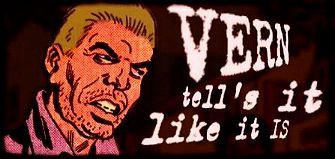
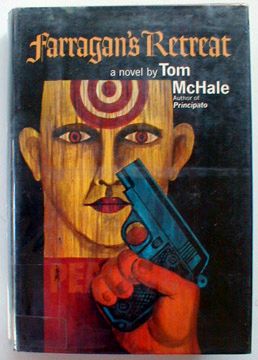
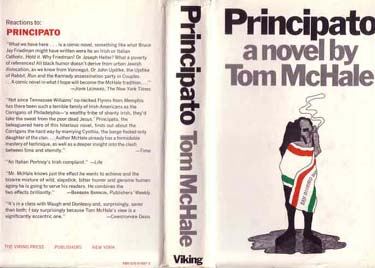

 PLEASE PLEASE PLEASE do not send me any books to any San Francisco addresses you have for me. I am now in the painful process of ruthlessly scaling down my books to a handful of boxes, feeling a bit like Sophie or Schindler and sobbing to friends on the phone and trying to remind myself that I can get new books.
PLEASE PLEASE PLEASE do not send me any books to any San Francisco addresses you have for me. I am now in the painful process of ruthlessly scaling down my books to a handful of boxes, feeling a bit like Sophie or Schindler and sobbing to friends on the phone and trying to remind myself that I can get new books. 
